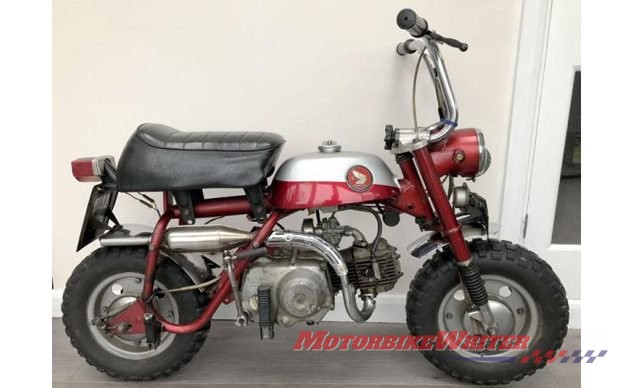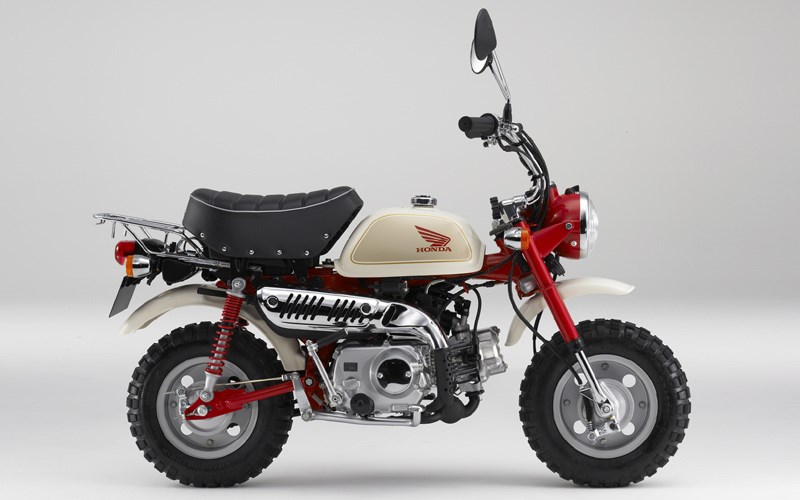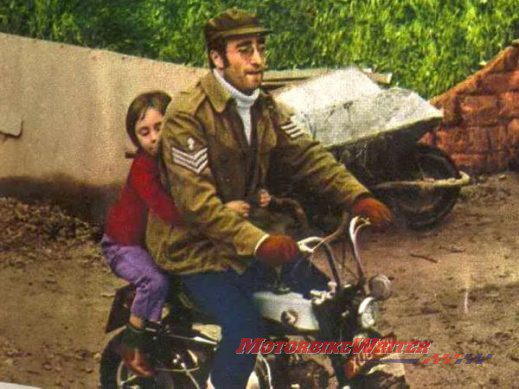John Lennon wasn’t known as a motorcyclist, yet his Honda monkey bike has sold for more than 15,000% of its original price at a British auction.
His Honda XUC 91H sold through H&H Classics at the National Motorbikes Museum for £56,250 (about $A100,300, €63,150 $US77,900).
It is the highest price paid for a monkey bike and almost double the estimated price of £30,000 (about $A52,000, €33,700, $US40,000).
That’s the price of fame and we’ve seen similar inflated prices for vehicles owned by Steve McQueen!
Honda began making the monkey bike with its high bars and robust little 49cc engine in 1968 and they were all the rage at the time.
So the hip Beatle bought one to ride around his Tittenhurst Park Estate in Surrey in 1969.

The monkey bike was sold in unrestored and original condition and was in running order.
It was owned for 47 years by John Harington, who bought it from Henry Graham bought it in June 1971 when Lennon migrated to New York.
The bike sold with an extensive history file including green log book, old MOTs, Honda dating letter, and matching frame and engine numbers.
H&H spokesman Mark Bryan says they were “thrilled to be entrusted with the marketing and sale of this bike, given its extraordinary provenance”.
There is no word on who bought the bike.
End of Monkey Bike era



Japan is falling into line with global Euro4 pollution restrictions that require self-diagnostic emissions systems which add to the cost of the bike, reducing the slim profit margin.
Honda chief officer Noriaki Abe says the bike had reached its technological limit for controlling emissions.
While Euro4 requires bikes to run clean for 20,000km, the introduction of Euro5 in 2020 requires those systems for the life of the bike, making them even more expensive to build.
The European Commission estimates that would add about $A160 to the cost of each vehicle which is about 10% of the price of some of these small-capacity models.



